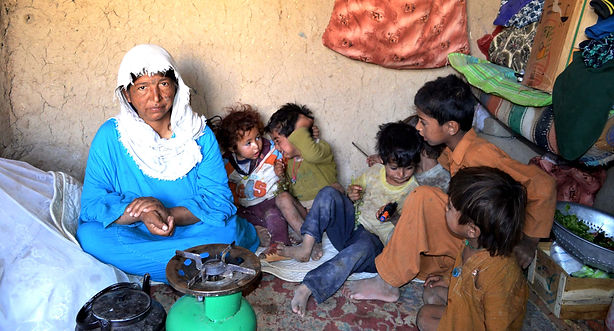
IN THE NEWS
25 Nov 2020
By Swarna Rajagopalan
Gender-based violence was predictable, and preventable, fallout of lockdown
The National Commission for Women sounded an alarm in early April that domestic violence cases had spiked in just the first week of the COVID-19 lockdown, as had distress calls. This was echoed by the UN Secretary-General who was used the term "shadow pandemic". Since then, across the world, police, shelters and helplines have confirmed that although the incidence of domestic violence was always higher than we liked to admit, there was an alarming increase in its frequency during the pandemic. Women, and gender and sexual minorities were confined indoors with their abusers and even making a call or stepping out for shelter were likely to be very challenging.
29 Oct 2020
By Rita Manchanda
Women’s Groups in India, Pakistan Have a Role to Play in Afghanistan’s Reconstruction
If ever Gayatri Spivak’s narrative of ‘white men saving brown women from brown men’ rang true it was in the discourse of ‘liberating’ Afghan women, mobilised to morally justify bombing a country continents away and of plunging its people into a war that “they did not ask for”. In four decades of violent strife as intra and international players laid waste Afghanistan’s land and society, Afghan women’s protection and rights were weaponised in the geopolitical manoeuvrings of powerful global and regional actors, driven by ideological and strategic interests.
05 Nov 2020
By Zarqa Yaftali
Women in War-Ravaged Afghanistan Fight Back for Their Rights
Bullets, bombs, tyranny and torture. Children crying for food, civilians struggling to survive, women unable to walk out of their homes freely. When we are not under siege from bombs and landmines, ordinary Afghans suffer from hunger, natural hazards and poverty.
06 Feb 2020
Pandemic as Mirror
The Coronavirus/ COVID-19 Pandemic is a complex emergency, a term which was used a great deal two decades ago to capture the reality that bad things rarely happen in isolation of other bad things. When disasters are layered over conflicts which are layered over structural inequalities, for instance, you have a complex emergency.
06 Feb 2020
When feminism meets foreign policy
On 9 January 2020, Mexico announced that it was adopting a feminist foreign policy. What would this mean? According to their official press release, it aligns Mexican foreign policy with the government’s commitment “to reduce and eliminate structural differences, gender gaps and inequalities”. Over the next four years, Mexico will promote gender equality and human rights in its relations with others, promote gender parity within its foreign ministry and ensure that the ministry is violence-free and safe for all.
06 Feb 2020
The COVID-19 Pandemic and Lookouts for International Relations
Complex emergencies, such as this pandemic, are disruptors in the normal business of international relations. There are natural physical effects such as when floods that alter the course of a river that demarcates boundaries or when a disease claims the lives of significant leaders. The actions of governments in the wake of an emergency also have an impact on international relations. While the crisis is still unfolding and we cannot make definitive pronouncements for a long time yet, it is possible to identify areas to watch.
05 Sep 2019
Press Conference: Women Regional Network and Women Advocacy Committee on Recent Peace Dialogue
Afghanistan is again in a critical situation. The peace negotiation process between the Taliban and US has led to wide-spread insecurity and enhanced fears among the Afghan people as they know nothing about the content of the so-called Peace Agreement. Afghan’s future is being negotiated without the inclusion of the Afghan people. The Women’s Regional Network and the Women’s Advocacy Committee express serious concerns that the US Special Representative to these talks, Ambassador Khalilzad, has put the hard won gains of the Afghan women in jeopardy. No one has suffered more at the hands of the Taliban than the women of Afghanistan. However, Afghan women have made enormous strides since the Taliban Government was overthrown in 2001 by US forces. Women’s rights are now protected in the Afghan Constitution giving them equality in every respect including the right to vote, along with the right to access education, justice and health care.
21 Jun 2019
No women, no peace, no democracy, By Swarna Rajagopalan
Recently, more than 75 members of the US Congress signed a letter urging the US administration to keep its statutory commitment to promote women’s participation in peace processes by insisting on the inclusion of Afghan women in the talks with the Taliban. This followed an intensive advocacy campaign by Afghan women and their supporters in the US to rally such support. As I have shared my excitement about the successful advocacy efforts in the US on the issue of Afghan women’s participation, I have had people look back at me blankly. Afghanistan? War? Taliban? Women, what women?
◄
1 / 1
►
